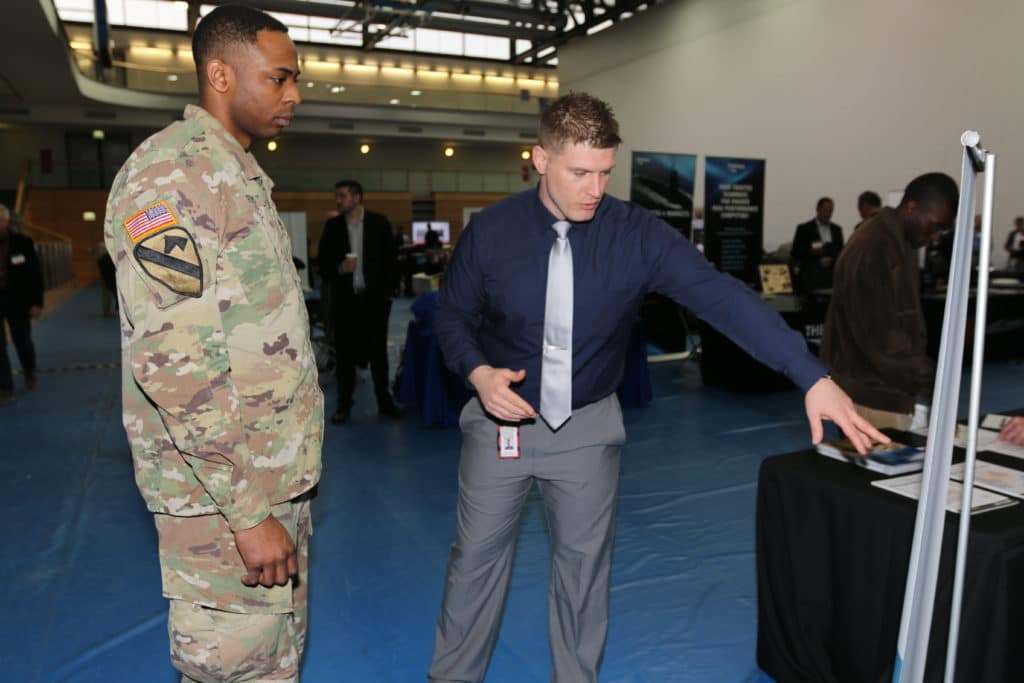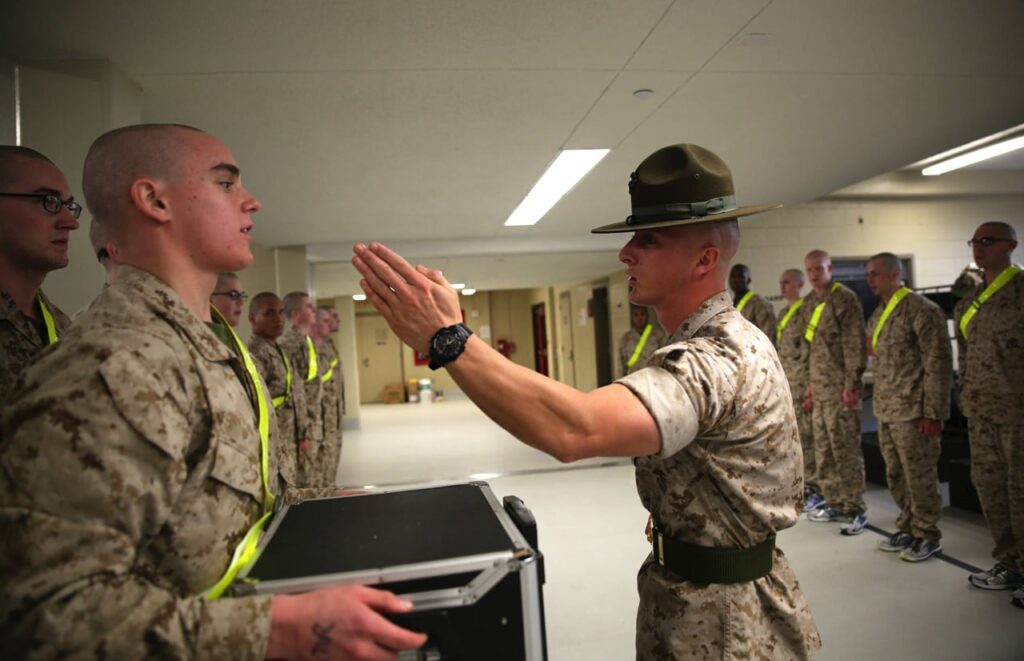Feeling intimidated by your civilian job search?
LtCol Murphy reminds you to succeed in the civilian world like you did in the military–with the help of your mentors.

Sandboxx has teamed up with Betts Recruiting to help you smartly navigate your career transitions and avoid common pitfalls. Get helpful content, tailored for where you are in your military journey, each week in the Sandboxx app!
Twenty years has flown by. It’s hard to believe that it’s over. I am now sitting in my kitchen, enjoying terminal leave, and scratching the beard I’m finally allowed to grow. All those years of mandatory shaving must have turned it white, because I’m certainly not that old yet. Seriously…I’m not! I’m young enough to start a second career and spend the next twenty, thirty, or even forty years following my new calling. But I’m starting from scratch. I’m the rookie in my new organization, and I’m more lost than a lieutenant with a compass. Throughout my career, I’ve had mentors to keep me out of trouble and guide me through danger areas. Who can I turn to now?

If you’ve had success in your military career, then you most likely have mentors that have guided and assisted you along the way, too. Mentors can be invaluable. Whether they have given you advice, taught you how things really work, or been your advocate and fought on your behalf, mentors play a huge role in the professional development of all service members.
But what about when you transition? How will you find mentors in civilian life? Here are a few tips for you to consider as you prepare to start fresh in a civilian career.
1. Just Because You Are Leaving the Military, Don’t Ignore Your Military Mentors
This may seem obvious, but many service members assume that their military mentors are of little or no value outside the military. Nothing could be further from the truth, and for several reasons. First, your military mentors will also transition someday – maybe even before you. Second, you never know who they might know. If you ask a military mentor for advice on a specific topic or career, he may not have all the answers, but he probably knows somebody that does. Third, and most importantly, we often look to our mentors for general advice on life. Your military mentor may not understand the nuances of your new career, but he understands leadership, balancing work with family, and a hundred other things that you might find useful.
2. Cast a Wide Net
Avoid target fixation when looking for mentors. It would be great if you could build a relationship with the CEO, and by all means try, but be careful not to miss other opportunities. Sometimes the best mentors are those that are just two or three rungs above you on the ladder. These are the guys that remember what it was like to be you, because it wasn’t that long ago. Not only do they remember how they advanced to their current level, but because it wasn’t three decades ago, there is a good chance that their methods are still effective.
You should also avoid focusing too narrowly on a specific skillset. Your mentor does not need to be the mirror image of you. In fact, a mentor from a different functional area within your industry may help provide you with insight and perspective that prove to be game changers in your professional development.
3. Make Your Career Aspirations Known
People like to help people – it’s in our nature. If you know what you want to do when you grow up, make it known! Tell your friends, your family members, and that lady you always see at Starbucks. Tell everyone. Social media sites, especially LinkedIn, are excellent platforms to share your goals with many people at once. (See our previous article entitled “LinkedIn Profile Advice for Transitioning Veterans”) When you do, chances are, someone will know somebody in your chosen field. When your neighbor says, “Hey, I know a guy…”, you politely ask your neighbor if he or she would be willing to introduce you. This has the added benefit of getting a referral from your mutual friend, which makes the initial meeting easier.
And if you do not know what you want to do when you grow up, check out part one of this series, entitled “Navigating Your Military to Civilian Career Transition” for advice on how to choose a follow-on career.
4. Join Professional Organizations and Groups
With the explosion of Social Media, there are organizations and groups for every combination of interests and locations imaginable. If you are looking to connect with other left-handed fry-cooks in the Tri-State area, there is probably a group for that. Once you join a group, don’t just read the articles! Begin posting and look for replies. Start individual conversations with people, and check their credentials on their personal profiles.
5. Don’t Be Afraid to Cold-Call
Even though referrals are always best, many young professionals have picked up the telephone and cold-called the heavy-hitters in their field. “Sir, my name is Robert, and I am starting a career in real estate. I would love to ask you a few questions about how you became so successful. Would you have twenty minutes that we could meet over coffee?” Be polite, be flattering, and see what happens. You may be surprised at who accepts your offer. If you get that meeting, however, it’s up to you to turn those twenty minutes into a longer relationship.
6. People Like to See Return on Investment
Mentoring is hard. It consumes time and energy. If a mentor invests the time to make you a better person, show them the fruits of their labor. Check in periodically and provide career or life updates. Don’t be the one that only calls when you need something. You may not have much to offer in return, but at least show your gratitude. Your mentor would not waste time on you if he or she didn’t think you were worth it. Show them they’re right. In the phrase “mentor relationship,” the more important word is relationship. And one-way relationships never last.
Stay tuned: Download the Sandboxx App
Download the Sandboxx App for ten more pieces of advice to help you in your career. Our Sandboxx veterans and partners at Betts Recruiting, USAA, and the USO have all contributed to mentor people like you.
Get the advice automatically each week in your Sandboxx app.
Stay tuned to this series to:
- Learn skills such as interviewing, networking and salary negotiation to help you achieve your career transition goals.
- Be connected with civilian employers looking to hire Sandboxx veterans.
Download Sandboxx:
Gerald Murphy recently retired from the Marine Corps as a Lieutenant Colonel, and now serves as a full-time pastor and minister of the Gospel. He and his wife of 19 years live in Carlisle, PA with their four children. In addition to being a husband, father and pastor, Gerald enjoys cycling, hiking and rock-climbing.
SANDBOXX is a mobile app focused on connecting our military community.Army | Navy | Marines | Air Force | Coast Guard






